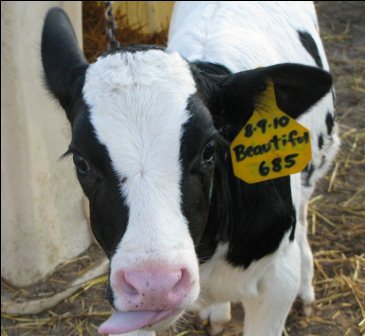
Competitive parenting has us taking sides against each other on everything, and marketers know it.
Before our kids are born we divide over natural, drug-assisted or C-section delivery. At the hospital or at home. Doula or doctor. Bottle or breastfeeding. Cloth or disposable diapers.
Rocking to sleep or crying it out. Nanny, sitter, daycare or stay-at-home. Ballet or soccer. Piano or tennis. Swimming or Mandarin. Public, private or homeschool. Religious or secular. Hot or cold lunch. Bus or carpool.
Sadly, we even divide over milk. Conventional or organic.
The Journal of the Academy of Nutrition and Dietetics published a study* concluding concluding there are “no biologically significant differences in quality, nutrients and hormones” between organic milk and conventional milk produced with or without rbST (recombinant bovine somatotrophin hormone). The conventional milk “had statisically lower bacterial counts,” a fact that may lead some to argue it’s safer.

So conventional and organic milk are compositionally the same. When you buy organic milk, you’re paying a premium for packaging that says so. Kind of like the alligator on a Lacoste shirt.
Buying organic for taste, convenience or preference is one thing. Buying it because you believe it’s safer is misguided.
It doesn’t stop with milk. In February 2011, STL Family Life published a post by a contributing writer. She saw the documentary Food, Inc., followed it up with Fast Food Nation, then, in her words, “freaked out” and decided to feed her family organic food only.
Jolly good for her. That’s her choice. Problem is, she implies all responsible parents should follow suit.
She writes buying organic food is more expensive, but cost is a poor excuse. She is willing to sacrifice things like a new car, video games, and real wrapping paper. In her words, making kids’ safety a priority is a parent’s “OBLIGATION.”
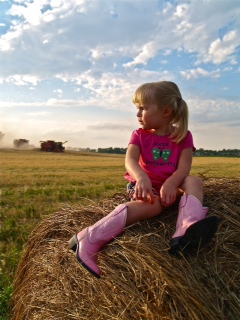
I agree our children’s safety is a priority, and the film disturbed me too. But I disagree with this mom’s implication that all conventionally-produced food is somehow unsafe or inferior.
My husband grew up on a dairy farm and has worked in agriculture his entire career. Last fall, we had the unique privilege of meeting filmmaker Rob Kenner, director and producer of Food, Inc., when he presented to a small group of agribusiness professionals.
We sat with Kenner at dinner. He’s a great guy—smart, savvy, admittedly liberal in his views. He made a sincere effort to show different sides of the issue in Food, Inc. But the large food and agricultural companies ignored his requests for an interview. As a result, their story was mostly left untold.
Can’t say I blame them for not talking to him. Sure wish they had though.
According to Box Office Mojo, Food, Inc. grossed $4,606,199. Not bad for a documentary.
The film was such a success, Kenner said environmentalist elite Prince Charles requested a private audience with him during a retreat to one of the castles. Think the royal family’s hurting for grocery money? Not on your Union Jack.
Kenner also talked of working on a second film about food for the same group of investors who backed the first Food, Inc. Cha-ching!
Meanwhile, millions of moms and dads stand before grocery store shelves and refrigeration units wringing their hands. Are they doing the right thing, buying conventionally-produced food and milk? Are they contributing to animal abuse and the destruction of the planet?
Are they bad parents? Are their children being short-changed? Do they really need all that clothing, shelter, education, transportation and wrapping paper? Maybe they should give it up to buy only organic food like responsible parents.
I mentioned my husband grew up on a dairy farm. His family named their cows and they had about 200. To this day he can tell you about cows’ individual personalities like teachers can tell you about former students.
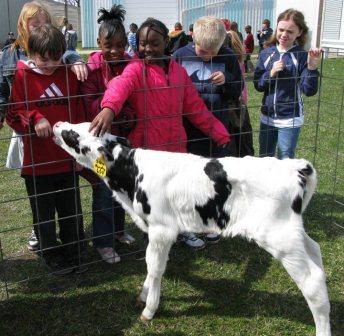
Good farmers don’t abuse their animals. They recognize those animals are their most valuable assets.
Good farmers love the land. They pursue the very best practices and technologies to produce the very best fruits, vegetables, grains and livestock. Seeing the healthy growth of their plants and animals is a primary force that drives them to farm.
Are there unscrupulous farmers? Yes there are. Same as there are unscrupulous butchers, bakers, candlestick makers, teachers, preachers and politicians. Should they be prosecuted? If they break the law, absolutely.
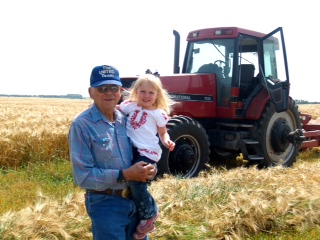
Should we all throw up our hands, head for the hills, and buy nothing but organic? You are free to do so if you choose. This is America. But please don’t guilt, scare or legislate the rest of us into doing the same.
Personally, I like having choices in this free market of ours. I buy what looks and tastes best, what my family will eat, what meets our nutritional needs, what’s available and what we can afford—conventional or organic.
It’s my responsibility as a parent to put the food on the table. It’s not my responsibility to compete with other parents or be judged for what I serve.
Those who feel free to eat anything must not look down on those who don’t. And those who don’t eat certain foods must not condemn those who do, for God has accepted them. Romans 14:3 NLT
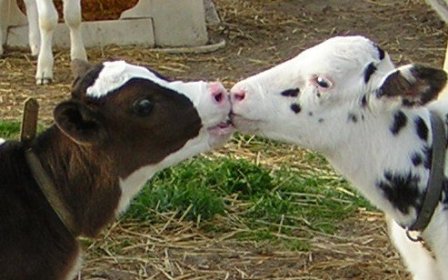
For your listening refreshment, order up a tall glass of No Milk Today by Herman’s Hermits.
*Reflects an updated link to the abstract of the study Survey of Retail Milk Composition as Affected by Label Claims Regarding Farm-Management Practices by John Vicini et al., published in the Journal of the Academy of Nutrition and Dietetics (1/2008).